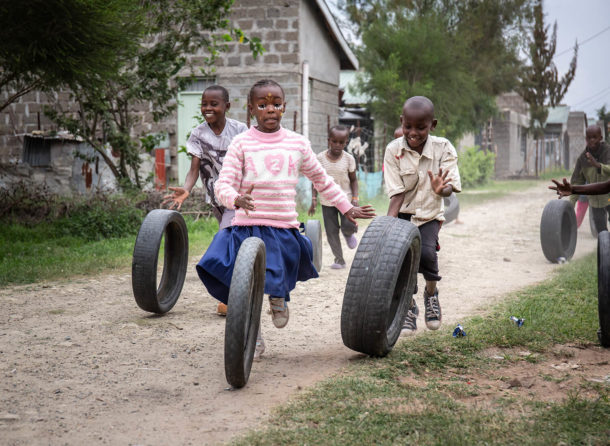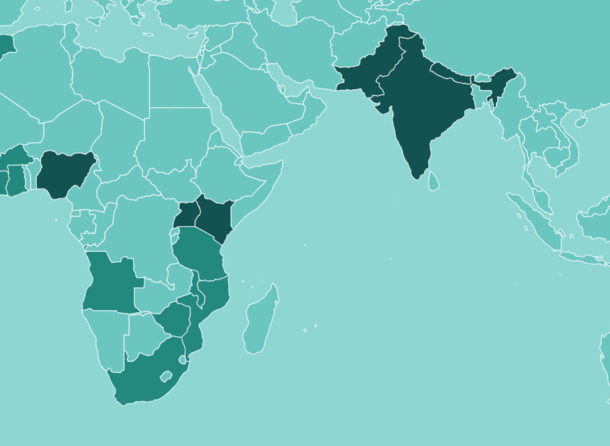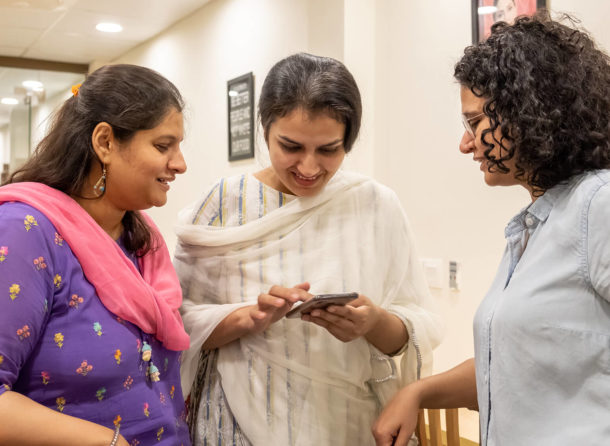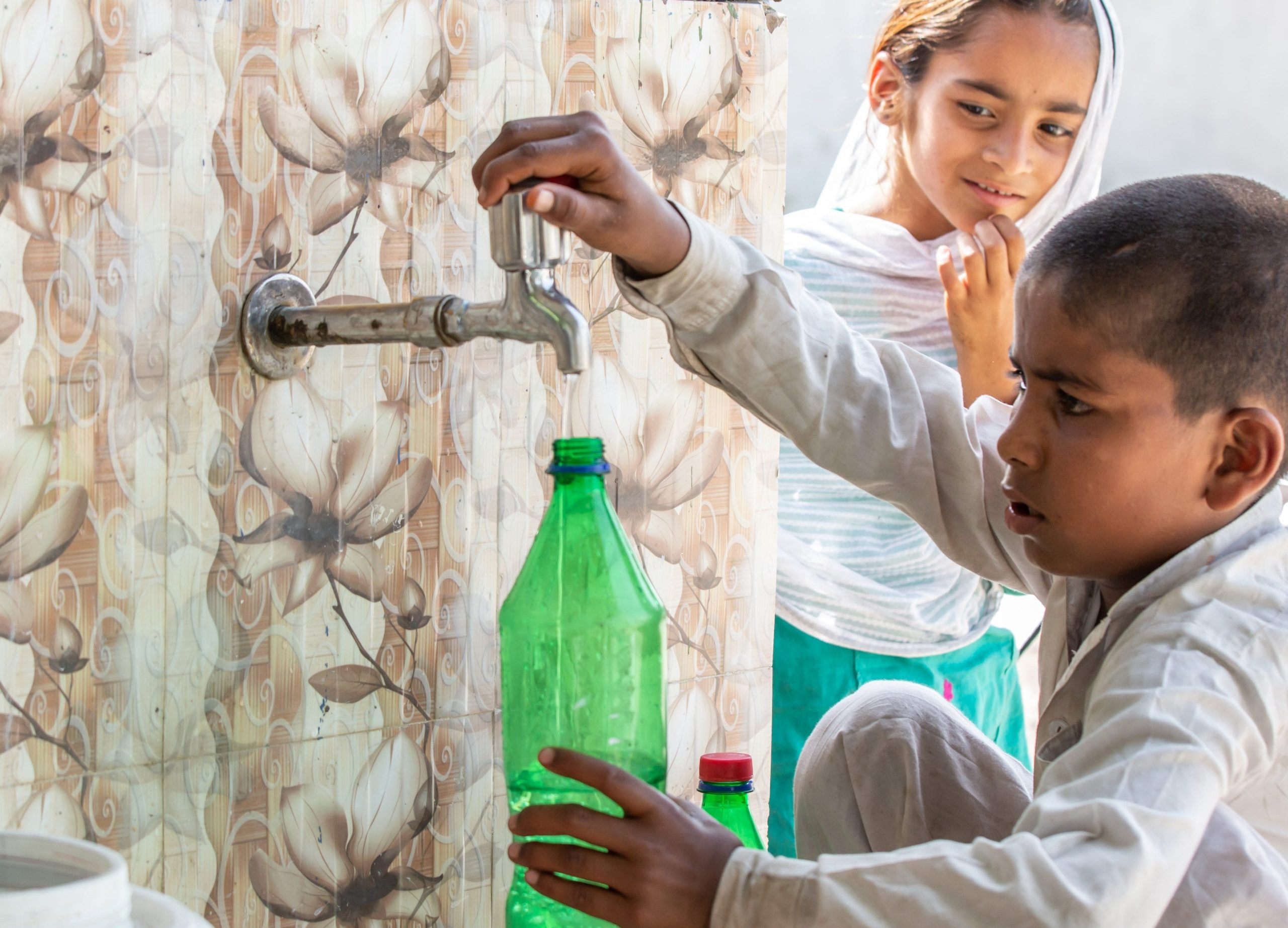
World Water Week Q&A
As part of Stockholm International Water Institutes (SIWI) World Water Week, Reall hosted a webinar to engage, share and showcase opportunities for urban climate and water resilience in emerging markets and the transformative role of affordable housing and urban planning – especially in a post pandemic world.
The webinar featured sector thought leaders at Reall, Sida and World Bank and formed an informative discussion. Below we answer a number of questions that were posed in the webinar answered by Reall Water & Sanitation Experts, Andrew Maclean and Adam Dawson and Reall’s Research & Policy Manager, Andrew Jones.
Audience Question:
Is there a successful approach that delinks the need to have land title / house title to be entitled to water and sanitation services? Typically, residents of slums are excluded from WASH services because they don’t have legitimate documents to prove their ownership.
We believe this has been done by others, but for Reall we consider obtaining some form of title or right to the land as an important element of the human right to decent housing. We work to achieve this on all our projects. To obtain some form of title is especially beneficial for women both as joint title holders and as sole owners in female headed households. Providing title is a powerful way to transition a household to the formal sector where improved access to services is available in perpetuity and in line with the SDGs.
Audience Question:
I agree that you can’t solve the water crisis without solving the housing crisis; however, in order to do this:
- a) water must be delivered cleanly to households through a network
- b) wastewater and sewerage must be removed from the home environment through a similar network.
Can you explain more how you work with utilities and municipalities to ensure this?
On water we work very closely with utilities to install connections and meters. The advantage of linking water to housing is that some or all of the capital costs can be incorporated in the housing finance, whilst the utility gains new customers with titled housing.
On wastewater, we have a range of approaches to allow site by site solutions; this can include municipal sewers, or on-site systems such as Decentralised Wastewater Systems (DEWATS) on our affordable housing developments. Systems can also be blended, with primary treatment and less polluted discharge from a site, or even tertiary treatment. The DEWATS can be adopted by the local authority but more often is run by a community management company.
Audience Question:
In India, many households have improperly designed septic tanks and pits. Is there an affordable, scalable solution to help retrofit these existing onsite sanitation systems and convert them to proper systems?
Yes, solutions do exist but a lot depends on exactly what is installed. In some cases, the tanks can be used simply as cess pits that will need periodic emptying and a small-bore sewerage system installed leading to a secondary treatment plant which could be as simple as a reed bed. However often such pits are already overloaded and a completely new DEWATS will need to be installed see https://cddindia.org/ for more local information on DEWATS.
Audience Question:
How can we get the water, housing and climate communities and actors to understand each other and work together?
Complex global challenges such as water scarcity, climate change, and housing poverty have many causes and manifestations. However, these challenges are too often approached with linear or even siloed solutions that are insufficient to address the problem at scale.
Many development sectors are characterised by tightly knit groups of practitioners who collaborate and exchange ideas regularly but fail to look across to other sectors to learn or collaborate. Successful outcomes require co-ordinated actions of decision-makers and stakeholders from across different disciplines and sectors.
To bring the water, housing, and climate communities closer together will require dedicated initiatives for sharing information, resources, activities, and capabilities. ˜Innovation labs, knowledge sharing platforms, cross-sectoral conferences, and joint research and fundraising propositions are all important tools to achieve this. Reall crowd in ecosystem stakeholders to learn and we share evidence and data with an open source approach.Â
Through these, we carve out new spaces for cross-sectoral learnings, understanding complementarities and surfacing the differences. Initial connections and communications between actors can enable the deepening of ties into consistent two-way communication strategies, shared planning, innovation and creative solutions. Reall are spearheading this transformative, bringing in collaborative leaders and embracing more complex perspectives.
Audience Question:
Are there any urban projects or programmes that are looking into or include rental housing for low-income people? If so, can you comment on this and is rental an area that needs to be explored further?
The majority of Reall’s housing delivery to date has tended towards affordable homeownership, purchased through appropriate end-user financing arrangements, rather than rental housing. This reflects how ownership of housing assets represents a trans-generational asset, that can be used to leverage financial resources and become a base to earn an income.
However, living in rental accommodation is the reality for many low-income people across urban Africa and Asia especially in densely populated large cities. In Kenya, 84% of people live in rental housing. Reall does recognise the need for rental solutions and has invested in a number of impactful rental projects across our portfolio.
For example, in Nepal we invested in a rental block of 24 households in Kathmandu, to provide short term housing to fill a gap before people transition into permanent homes as their families grow or economic opportunities improve.
In Lahore in Pakistan, we invested in the renovation of a former medium-rise office block to house young female professionals and students from lower-income families, renting after migrating from other cities in search of better educational and employment prospects. Going forward, Reall will improve our capacity for affordable rental housing models as an essential strand of our priority country strategies.
Audience Question:
Ylva (Schwinn, Programme Specialist from Sida) raises indirectly the challenge of access/security of tenure with respect to affordable and safe land. Such spaces are becoming very rare and expensive in cities. The end result is poor quality housing in marginal environments. It’s useful then to see housing through the lens of a crisis of safe and affordable space.
Land is a critical link in the housing value chain, and Reall recognises that access to affordable land for urban housing development is problematic in many low-income countries. Urbanisation and market forces drive up the cost of land and make it inaccessible to most city dwellers.
Purchasing developable land can be an extremely convoluted process involving many actors from the local to the national level. Restrictive policies and regulations further strangle development by discouraging investment and limiting options for people on low incomes. It is also very difficult to accurately assess and value land, worsening by secrecy around ownership and slow titling. There is an urgent need for endemic challenges to be resolved, to make usable land available for large-scale affordable housing development.
Reall works with partners and key stakeholders to facilitate access to urban development land, including entering into joint ventures to catalyse change. By identifying cheaper land that has high potential for increasing in value, we foster a credible investible pipeline. All housing delivered by Reall and its partners includes secure, clean land title for its occupants.
This is often painstaking work that requires the negotiation and settlement of competing claims. Reall work to unblock the processes underpinning land valuation and development in our priority countries, as a means of reducing land costs and streamlining administration. This includes supporting the digitisation of land cadastres, promoting legal land due diligence skills, and investing in surveying instruments and planning expertise.
Thank you again to those who took part in the session. Keep up to date with the latest news from Reall on our Twitter and LinkedIn and find out about our next event.
Read more stories
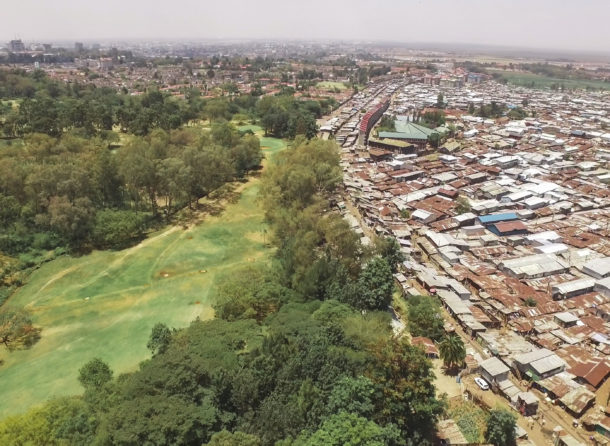
How Affordable Homes could help solve the global climate crisis
The United Nations climate summit, COP25, starts today in the Spanish city of Madrid where climate leaders will push to scale up action and investments into rapidly reducing global greenhouse gas emissions and support broader sustainable development agendas, specifically addressing …
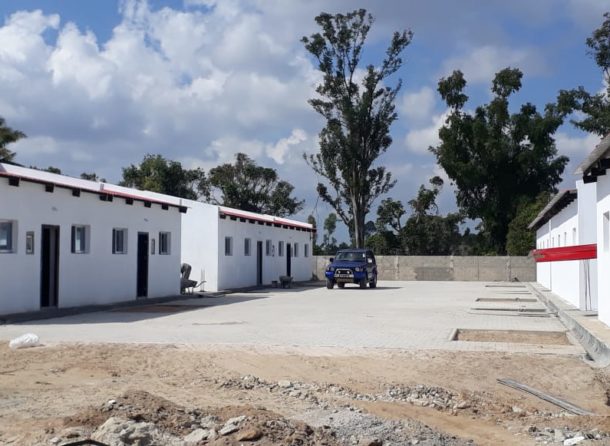
Celebrating affordable housing in Beira
The ribbon-cutting ceremony was attended by Reall’s Director of Investment and Operations Patrick Domingos-Tembwa, Mayor of Beira Daviz Simango and Casa Real Director Marie Odile. The celebration was particularly poignant as these homes managed to withstand the destruction of Cyclone…
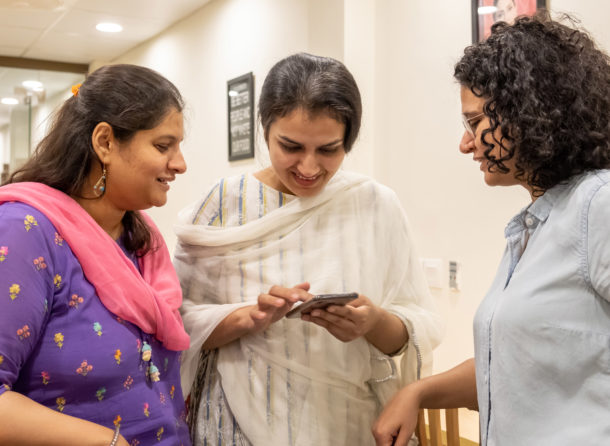
New Partnership: Syntellect
Reall are delighted to be partnering with India-based technology firm, Syntellect. Syntellect are committed to giving unbanked people the opportunity to access mortgage finance across Africa and Asia. Syntellenct has created RightProfile, a customer profiling platform designed to help lenders …
